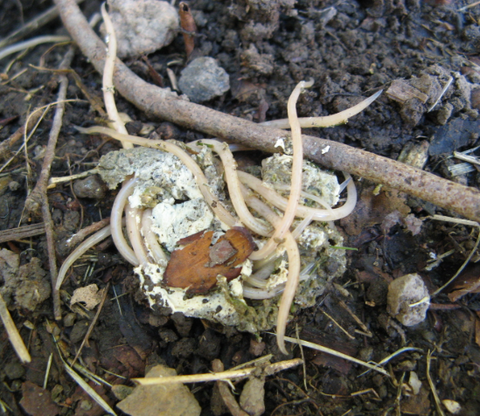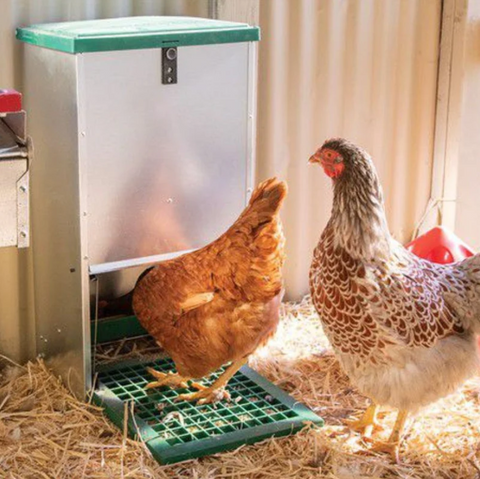Keeping chickens means fresh eggs, quirky personalities, and lots of joy—but it also means staying on top of their health. One of the most overlooked aspects of poultry care is worming. Yep, chickens can get worms too!
Let’s talk about why worming matters, the signs of internal parasites, and how to treat and prevent them so your flock stays happy, healthy, and laying strong.
🪱 Why Do Chickens Need Worming?
Just like dogs, cats, or other animals, chickens are prone to internal parasites—aka worms. These pests live in the digestive tract and can cause serious issues if left untreated.
Common worms in chickens include:
-
Roundworms (Ascaridia): The most common type, sometimes visible in droppings.
-
Gapeworms: These attach to the trachea and cause respiratory distress.
-
Tapeworms: Less common, but can cause weight loss and poor condition.
-
Capillary worms: Microscopic, often affect the crop or intestines.
-
Caecal worms: Found in the ceca (two blind pouches at the end of the intestines).
🧍♀️ Signs Your Chickens Might Have Worms
Some infestations are mild and go unnoticed, but heavier worm burdens can cause:
-
Pale combs and wattles
-
Weight loss or poor growth
-
Diarrhoea or runny droppings
-
Decreased egg production
-
Lethargy or weakness
-
Gasping for air (if gapeworms are present)
-
Visible worms in droppings (especially roundworms)
⚠️ Note: Sometimes, you won’t see any symptoms at all until the infestation is serious—this is why routine worming or testing is important!
🩺 How Often Should You Worm Chickens?
There’s no one-size-fits-all answer—it depends on your management style, flock size, and exposure risks. Here's a general guide:
🗓️ Routine Worming Schedule (If You Don’t Faecal Test)
-
Every 3–6 months, especially in spring and autumn
-
More often if your chickens free-range or you live in a wet climate (worms thrive in damp conditions)
🧪 Worming Based on Faecal Testing
-
Collect droppings and send them to a vet or lab
-
Only worm if parasites are detected (reduces resistance risk)
💊 What to Use: Common Chicken Worming Products
Check your country’s approved products, but common wormers include:
✔️ Levamisole (e.g. Aviverm)
-
Broad-spectrum treatment for most worms
-
Added to drinking water
-
Egg withdrawal: usually 7 days
✔️ Flubendazole (e.g. Flubenol)
-
Often mixed into feed
-
One of the safest, with no egg withdrawal in some countries
✔️ Ivermectin (off-label use in poultry in some countries)
-
Effective but check legality and egg withdrawal times
❌ Natural remedies like garlic or pumpkin seeds are great as a prevention aid, but not effective against established infestations.
🥚 What About Egg Withdrawal?
After worming, most chemical treatments require a withdrawal period, during which you shouldn’t eat the eggs. Always read the label, but common withdrawal times are:
-
7 days for levamisole or similar products
-
0–7 days for flubendazole (depending on the country and product)
You can feed the eggs back to your chickens during this time, so nothing goes to waste.
🛡️ How to Prevent Worms in Chickens
While worming is sometimes necessary, prevention is even better! Here’s how:
✅ Keep the coop clean—regularly change bedding and remove droppings
✅ Rotate pastures or runs to avoid over-contaminating the ground
✅ Avoid overcrowding
✅ Use apple cider vinegar (1 tsp per litre of water) to support gut health
✅ Offer natural dewormers like pumpkin seeds and garlic as a supplement
✅ Faecal test annually (or more often) for parasite load
📦 How to Worm Chickens – Step-by-Step
-
Choose your wormer: Based on symptoms, vet advice, or test results
-
Read the instructions carefully—dosage is important
-
Remove other water/food sources if using a water-based wormer
-
Repeat the treatment if required (some need a follow-up in 7–14 days)
-
Mark your calendar for the next dose or test
-
Don’t forget egg withdrawal if needed
🐔 Final Thoughts
Worms are an unfortunate but manageable part of keeping chickens. By staying proactive with routine care, clean conditions, and the occasional treatment, you’ll help your flock stay worm-free and egg-productive all year long.
Healthy gut = happy cluck!
Need help choosing the right wormer or supplement for your flock? We’ve got trusted options in stock and advice to match.
Shop our wormers here
– The Chook Manor Team 🐓💛




